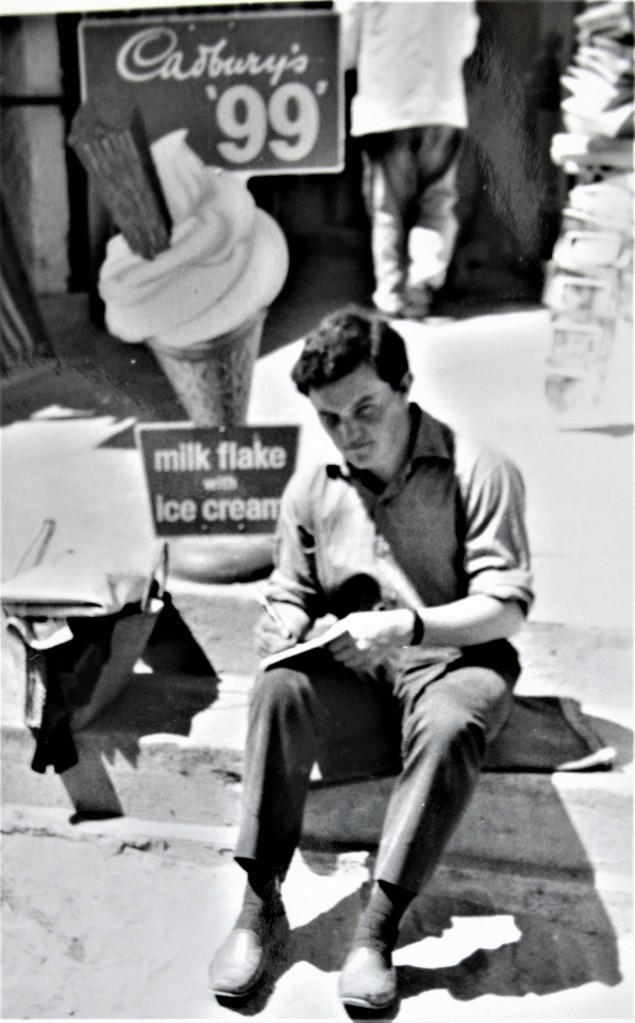
It’s Purple Martyn the Purple Peril.
Never mind. He looks sad.
Perhaps he’s feeling blue.
Blueberry and the Night Bumps
Blueberry is a nocturnal teddy bear. At night he stands by the side of my bed and protects me all night long. Before I get into bed, I take Blueberry from the dresser and place him beside my bed. Only when he is there, on guard, do I get into bed tuck myself in.
“Goodnight, Blueberry,” I say to him, but he never replies. He has a job to do. As I drop off to sleep, he comes alive. Some nights I pretend to fall asleep. When I start to fake snore, Blueberry begins to walk around the bedroom.
He walks to the door and makes sure it is properly shut. Then he looks under the chairs and behind the dresser. Next, he opens the closet door, looks in, and checks that no Night-Bumps are hiding in there waiting to go BUMP in the night.
I am afraid of those Night-Bumps. One night, when Blueberry wasn’t there, a Night-Bump came and sat on my head and went bump-bump-bump all night long. I couldn’t get any sleep. Next morning, my head ached and I didn’t want to eat my breakfast. Nasty Night-Bumps.
The last thing Blueberry does is to check beneath the bed. Sometimes he crawls right underneath it. One night, I woke up to hear an awful noise, squeaking and screaming and a gnashing of teeth. Then silence fell.
Blueberry emerged from beneath the bed holding something that once had wriggled but that would never wriggle again. He walked to the waste-paper basket in the corner, took out and old sheet of paper, wrapped his little bundle in it, dropped it into the basket, then came over to see me.
“That’s the last Night-Bump,” he said. “It struggled wildly, but I got it before it could go bump. You can go back to sleep now. No Night-Bump will go bump in here again. They are all too afraid of me to come back. And don’t worry: if there’s anything else comes in, I’ll get it.”
“Oh Blueberry,” I said, and reached out to hug him.
“Can’t do it,” he sat down and showed me the soles of his feet, one by one. LOVE YOU: these words decorate Blueberry’s two back paws, with one word sewn into each. Usually, I can only read the message by day, when Blueberry sits down and rests.
LOVE YOU stood out as he sat down and raised his legs to show me his message. Then he got back up.
“No hugs. I’m on duty. No nightmares. No worries. Sweet Dreams. And back to sleep you go now.”
And I did.
Next morning, I picked Blueberry up, gave him a big hug, and set him down on the dresser, feet up. LOVE YOU, his feet said.
“Love you too, Blueberry,” I said. And then I added: “Everybody needs a Blueberry.”
I swear Blueberry nodded his head.








